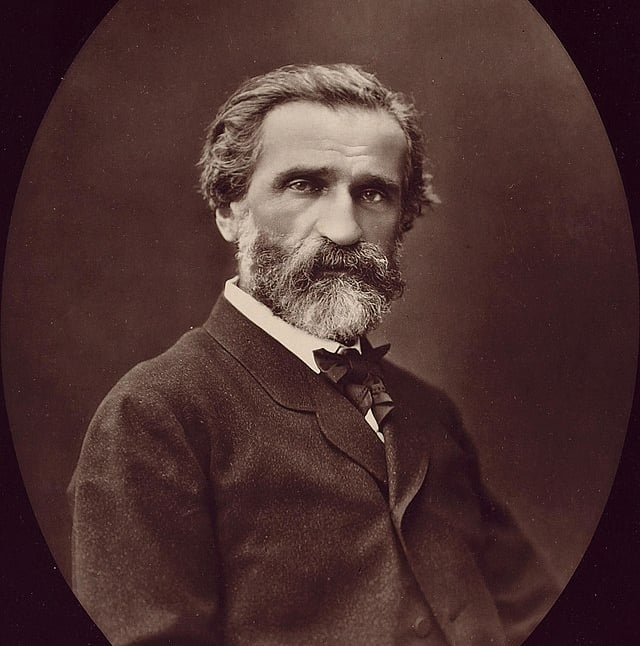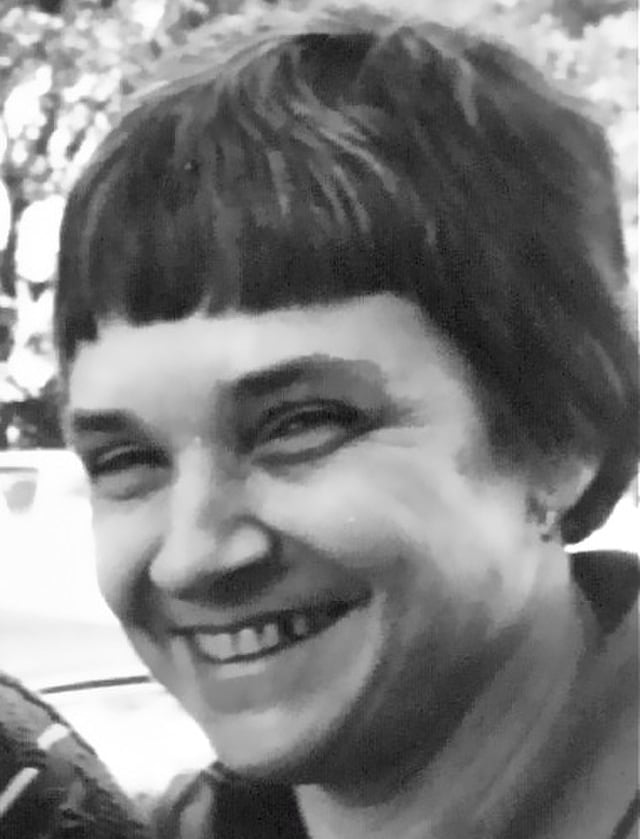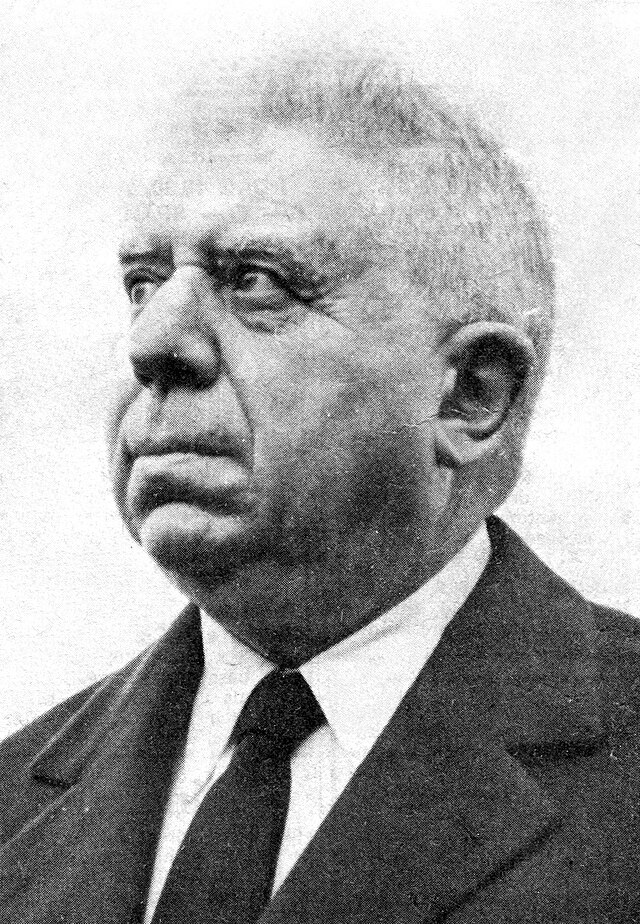Poet Lawrence Raab (who has assembled a magnificent one) gave me the idea: this is simply a collection of quotations, scraps of poetry, fragments of letters, etc. which seem to me to have some relevance to music, and particularly (but not exclusively) to composition.
Composers' voices
FRANZ SCHUBERT
What I produce is due to my understanding of music and not of my sorrows.
(but Brahms called his wonderful op. 117 intermezzi 'the lullabies of my sorrows.')
ON VERDI
What scope and vitality Verdi had, and with what scale he could endow his people! How I would like to have known him!
-Stravinsky
The orchestration of this symphony (4) is in no wise aimed at creating sound effects, but rather at clearly expressing what I have to say. In this respect no one has taught me more than Verdi, who has opened up an entirely new field.
-Mahler
FROM THE LETTERS OF VERDI
To copy the truth might be a good thing, but to Invent the Truth (Inventare il Vero) is much better. These three words might seem contradictory, but ask Papa (Shakespeare). Perhaps he might have met a Falstaff somewhere, but never a villain like Iago, and never, never, never, such angels as Cordelia Imogene Desdemona etc, and yet they are so true! To copy the truth is a fine thing, but it's photography, not painting...
Letter to Clarina Maffei, 20 October 1876
STRAVINSKY
RC. What is theory in musical composition?
I.S. Hindsight. It doesn’t exist. There are compositions from which it is deduced. Or, if this isn’t quite true, it has a by-product existence that is powerless to create or even to justify. Nevertheless, composition involves a deep intuition of theory.
-From 'Conversations with Igor Stravinsky,' ed. Robert Craft
GEORGE PERLE
... I find the notion of a composer who is not also a theorist incomprehensible, by which I do not mean that he has to write articles for, or even read, Perspectives of New Music or The Journal of Music Theory. The two kinds of musical understanding are directly, not inversely, related. They are related, one might say, in the way the area of a circle is related to its circumference. If we take what is inside the circle as a measure of the composer’s conscious knowledge, we can take its circumference as a measure of his intuitive knowledge, a measure of what impinges on whatever is outside the circle.
ARNOLD SCHOENBERG
I can’t utter too many warnings against overrating these analyses, since after all they only lead to what I have always been dead against: seeing how it is done; whereas I have always helped people to see: what it is.... the only sort of analysis there can be any question of for me is one that throws the idea into relief and shows how it is presented and worked out.
KEITH RICHARDS
What is it that makes you want to write songs? In a way you want to stretch yourself into other people's hearts. You want to PLANT yourself there, or at least get a resonance, where other people become a bigger instrument than the one you're playing. It becomes almost an obsession to touch other people. To write a song that is remembered and taken to heart is a connection, a touching of bases. A stab to the heart. Sometimes I think songwriting is about tightening the heartstrings as much as possible without bringing on a heart attack.
-From 'Life'. This book contains some of the most eloquent writing about music and music-making I've ever read.
FROM AN INTERVIEW WITH JOHN LUTHER ADAMS
Music is not what I do; music is how I understand the world.
MORTON FELDMAN
Michael von Biel studied with me a long time ago and I said, "Well, let's work together." I was working on some two-piano music and thought it was interesting and he was already a sophisticated young composer so I said, "Let's work on some two-piano pieces." So the first lesson he comes and all the music is in the middle. And I said, "Michael, no matter what you do, if you write always in the middle it's going to sound like a chorale. No matter what you do." The next week he comes and he has middle but he has a lot of bass. And I said, "Michael, I said, be careful with the bass. It's lugubrious. Be careful with the bass." The third lesson he comes, a lot of high notes. I said, "Michael, be careful with the high notes, it's twentieth-century affectation behind that." He got very upset, he got hysterical: "no long notes," he said, no middle notes, no high notes! What kind of notes?" And I grabbed him by the tie - that was in the days when young men wore ties - and I said, "Michael, high, middle, low, alles zusammen!" He didn't need any more lessons, he got the formula: "Alles zusammen, Michael!"
-from Give My Regards to Eighth Street.
PHILIP GLASS
As a composer, I think we develop techniques in a kind of desperation to find a way of making something new. My sense of what happens next is "Where is the paddle that's big enough and strong enough to power me through that moment?"
-- from Words Without Music
Poets' voices
LAWRENCE RAAB
THE MUSE EXPLAINS
How hard, my lonely boy, it is
for you without me. How jealous
you become when you picture
someone new whose solitude
I’ve quietly entered. So much
like a lover. Like one
who wishes not to speak
to be heard. Now you’re certain
I’ve left you for good. Yes, fickle
is too kind, unfaithful as well.
But none of the words
that come to you so easily
are the words you need. Try to worry
a little more about this. Also:
Don’t wait for me.
I’ve never whispered sweetly
in anyone’s ear, or floated around
with a harp, dressed up in some gauzy
outfit I wouldn’t in a million years
have chosen for myself. In fact,
I come and go without a fuss.
You’d never notice me
if we passed on the street.
And we have. But I’m patient.
I can wait for you
to understand how much
I don’t want to say, how content
I am, my dear, to be quiet.
What if I stood even closer?
If I always only listened?
ROBERT FROST
A poem should ride on its own melting.
JORGE LUIS BORGES
A man sets himself the task of portraying the world. Through the years he peoples a space with images of provinces, kingdoms, mountains, bays, ships, islands, fishes, rooms, instruments, stars, horses, and people. Shortly before his death, he discovers that that patient labyrinth of lines traces the images of his own face.
WALLACE STEVENS (from his letters)
These men (Bonnard and Pisarro) attach one to real things: closely, actually, without the interventions or excitements of metaphor. One wonders sometimes whether this is not exactly what the whole effort of modern art has been about: the attachment to real things. When people were painting cubist pictures, were they not attempting to get back not the invisible but the visible? They assumed that back of the peculiar reality that we see, there lay a more prismatic one of many facets. Apparently deviating from reality, they were trying to fix it, and so on, through their successors.
I desire my poem to mean as much, and as deeply, as a missal. While I am writing what appear to be trifles, I intend these trifles to be a missal for brooding-sight: for an understanding of the world.
(on The Man with the Blue Guitar, 7/11/53)
Monster=Nature, which I desire to reduce; master, subjugate, acquire complete control over and use freely for my own purposes, as poet. I WANT, AS POET, TO BE THAT IN NATURE, WHICH CONSTITUTES NATURE'S SELF. I want to be nature in the form of a man, with all the resources of nature. I want to be the lion in the lute, and then, when I am, I want to face my parent and be his true part. I want, as a MAN OF THE IMAGINATION, TO WRITE POETRY WITH ALL THE POWER OF A MONSTER EQUAL IN STRENGTH TO THAT OF THE MONSTER ABOUT WHICH I WRITE. I WANT MAN’S IMAGINATION TO BE COMPLETELY ADEQUATE IN THE FACE OF REALITY.
.... It was her voice that made
The sky acutest at its vanishing.
She measured to the hour its solitude.
She was the single artificer of the world
In which she sang. And when she sang, the sea,
Whatever self it had, became the self
that was her song, for she was the maker. Then we,
As we beheld her striding there alone,
Knew that here was never a world for her
Except the one she sang and, singing, made.
.. O blessed rage for order, pale Ramon
The maker's rage to order words of the sea,
Words of the fragrant portrals, dimly-starred,
And of ourselves and of our origins,
In ghostlier demarcations, keener sounds.
-from The Idea of Order at Key West
LAWRENCE RAAB
Just by trying to see clearly
the difficulty arrives and then
there is no end to it
from 'The Palace at 4 A.M.'
ADRIENNE RICH
Poems are like dreams. In them you put what you don't know you know.
DON PATERSON
I wanted to say something to counteract the perception of Shakespeare's compositional method as a kind of lyric soduku, and put in a word for the kind of glorious, messy procedure I'm quite certain it was, whatever the crystalline and symmetrical beauty of the final results. Like most poets, Shakespeare uses the poem as way of working out what he's thinking, not as a means of reporting that thought. Often he'll start with nothing more than a hangover, a fever and a bad night spent being tormented by the spectre of his absent lover. Then he'll use the sonnet as a way of making sense of it all – a way, first, to extract a logic from pain, and then a comfort from that logic, however warped it might be. Form, in other words, allows him to draw some assuagement from the very source of the agony itself.
FROM THE LETTERS OF JOHN KEATS
I am certain of nothing but of the holiness of the Heart's affections and the truth of Imagination. What the imagination seizes as Beauty must be truth - whether it existed before or not… -to Benjamin Bailey, 22 Nov 1817
…at once it struck me, what quality went to form a Man of Achievement, especially in LIterature and which Shakespeare possessed so enormously - I mean Negative Capability, that is when man is capable of being in uncertainties, Mysteries, doubts, without any irritable reaching after fact and reason. Coleridge, for instance, would let go by a fine isolated verisimilitude caught from the Penetralium of mystery, from being incapable of remaining content with half knowledge….. , to George & Tom Keats, 21 Dec 1817
EUGENIO MONTALE
Bring me the sunflower, so I can transplant it
in my salt-scorched terrain
so it can show the longing of its yellow face
all day long to the mirroring blue skies.
Dark things tend towards brightness,
physical things exhaust themselves in a flowing
of colours, and colours exhaust themselves in music.
So to vanish is the greatest adventure of all.
Bring me the plant which leads to the place
where luminous transparencies mount upwards
and life is an essence which evaporates:
bring me the sunflower crazy with light.
Portami il girasole ch'io lo trapianti
nel mio terreno bruciato dal salino,
e mostri tutto il giorno agli azzuri specchianti
del cielo l'ansietà del suo volto giallino.
Tendono alla chiarità le cose oscurem
si esauriscono i corpi in un fluire
di tinte: queste in musiche. Svanire
è dunque la venture delle venture.
Portami tu la pianta che conduce
dove sorgono bionde trasparenze
e vapora la vita quale essenza:
portami il girasole impazzito di luce.
-Eugenio Montale, trans. J.P.
SHAKESPEARE
...Look, how the floor of heaven
Is thick inlaid with patines of bright gold;
There's not the smallest orb which thou behold'st
But in his motion like an angel sings,
Still quiring to the young-eyed cherubins...
-Shakespeare, The Merchant of Venice
Novelists' voices
TOLSTOY
I don't know how to draw a circle. I draw it, then correct.
-Quoted in 'Energy of Delusion: A Book on Plot' by Viktor Shklovsky.
BECKETT
I don't write about.
JOHN CHEEVER on VERDI
So I sit at the kitchen table, drinking black coffee and thinking of Verdi. Through government aid I heard, in the last week, the last scene from 'Il trovatore' and the Requiem Mass. And so I think of the enormous contribution Verdi made to the life of the planet and the enormous coöperation he was given by orchestras and singers and the enthusiasm of audiences. And I think what an enormous opportunity it is to be alive on this planet. Having myself been cold and hungry and terribly alone, I think I still feel the excitement of an opportunity. The sense of being with some sleeping person - one's child or one's lover - and seeming to taste the privilege of living, or being alive. This sense of privilege or opportunity seems to hint, and no more than hint, at other worlds around us. This seems a singular experience.
-from The Journals of John Cheever
T. CORAGHESSAN BOYLE on writing
We each receive the world according to our lights and what the sparking loop of our senses affords us and all I can do is hope to capture it in an individual way, to represent the phenomena that crowd in on us through every conscious moment as they appear and vanish again. I want to be playful and serious, investigative and imaginative, curious and more curious still, and I don’t want distractions. ..... Each day I have the privilege of reviewing the world as it comes to me and transforming it into another form altogether, the very form I would have wrought in the first place if only it was I who’d been the demiurge and the original creator—the one, the being, the force, whether spirit or random principle, that set all this delirious life in motion.
-T. Coraghessan Boyle, Apologia
HERMANN BROCH
The gods did not wish him to finish the verses; they did not wish him to rob the verses of their inconsistency (Unstimmigkeit) ; for all human work must arise from twilight and blindness, and thus remain in inconsistency; this is what the gods have decided. Yet now he knew it: this was not only a curse, but also a grace for humans - not only man's imperfectibility but also his closeness to the gods; not the incompleteness of the human soul but also its greatness, not only the blindness of blind-born human accomplishments, but also their power of intuition, which would not have come into being but for their blind gaze - for in each human work lies the kernel, the seed of something that reached beyond itself and beyond the one who created it, making the worker into a creator - for this universal inconsistency only comes about when man sets to work - Not in the actions of the gods nor in those of animals, but only in this inconsistency (dissonance) can the fruitful magnificence of human fate be revealed, because it is a reaching out for something beyond itself: between the silence of animals and that of the gods stands the human word, waiting itself to be silenced in enchantment, dazzled (überstrahlt) by the eye whose blindness becomes insight - enchanted blindness, the opposite of vanity. (die Nicht-Vergeblichkeit)
-Hermann Broch, The Death of Vergil, my (clumsy) translation
GUY DE MAUPASSANT
Il y a, dans tout, de l'inexploré, parce que nous sommes habitués à ne nous servir de nos yeux qu'avec le souvenir de ce qu'on a pensé avant nous sur ce que nous contemplons. La moindre chose contient un peu d'inconnu. Trouvons-le. Pour décrire un feu qui flambe et un arbe dans une plaine, demeurons en face de ce feu et de cet arbre jusqu'à ce qu'ils ne ressemble plus, pour nous, à aucun autre arbre et à aucun autre feu.
There is something unexplored in everything, for we have the habit of only using our eyes with the memory of what others have thought before us about what we are contemplating. The slightest thing contains a little of the unknown. Let us find it. To describe a fire blazing, or a tree in a meadow, let us remain in front of this tree until it no longer resembles any other tree, any other fire.
from the preface to PIerre et Jean, quoted by Sarah Bakewell in At the Existentialist Café
Other voices
From George Leonard, The Silent Pulse
'At the root of all power and motion, at the burning center of existence itself, there is music and rhythm, the play of patterned frequencies against the matrix of time....Before we make music, music makes us... For music is a reflection in sound of the world's structure, making explicit the rhythmic quality in all things, which otherwise we might only deduce or infer...
From Egon Wellesz, Ancient and Oriental Music (volume 1 of the New Oxford History of Music, 1957)
The idea of the acoustic nature of the soul, which survived into the Middle Ages in Europe (symphonalis est anima, said Hildegard von Bingen) and was taken up again by the German Romantics... is manifest among primitive peoples particularly in the belief that, even after the disappearance of the last mortal remains, the soul of a dead man.. survives as an essence (spirit) which is perceptible only in sound.
From William Marx, Le tombeau d'Oedipe (my translation)
The gods do not like us to speak of them. Let us be silent: it is still the surest way to approach them.
Paradoxical fecundity: tragedy is an empty shell where everyone tries to put what he can. It owes its productivity to its refusal of any conceptual reduction: including, above all, the notion of The Tragic
The sensation of beauty appears when reason, confronted with the profusion of possible interpretations and overwhelmed by their contradictory multiplicity, abdicates.
..the most accomplished work of art is a machine to block any definitive interpretation: or to multiply the provisional interpretations, which produces the same result.
… (There is) a certain type of contemporary art, distinct from modern art in its refusal of the inexplicable. It tends to pure concept. Once you have described these works, you have expressed everything… they have nothing to teach us beyond their concept, apart from an effect of provocation and surprise… Eminently patentable art, whose gesture can be effortlessly reproduced over the whole surface of the planet (in this facility of diffusion resides, perhaps, its reason for being.).. (these works) differ less from each other than they do from the work of Anselm Kiefer, who on the contrary grounds his art in the inexplicable, the unsayable, in the gods; in short, in tragedy. (But) in a significant portion of contemporary work, the hermeneutics precedes the work, which does not exist without its justificatory discourse.
Orphan of an entire world, tragedy is the perfect victim: it passes so easily onto the Procrustean bed imposed by our readings of all allegiances (philosophical, political, psychoanalytical, culturalist, gender, etc.) .. Deprived of everything which surrounded it.. it has entered the world of literature. But first it was something else, of which we know almost nothing and which it is impossible to hope to understand.
How then should we talk of this object?… …we are so programmed today to make sense of everything - it's our way of inhabiting these texts, for better or for worse. Tomorrow, perhaps, it will go differently. Meanwhile, before interpreting, let us at least know how to suspend for an instant our intellectual machinery, and preserve a pure moment of grace and terror. Meaning will come later, always grounded in an awareness of our ignorance: a reserved hermeneutics.
This is not to call for an end to criticism and historical research, but to demonstrate their insuperable limitations… The god of Delphi told us to avoid excess in all things: a lesson of ethics and modesty from which knowledge is not exempt: tragedy teaches us to let the inexplicable have its place.
FROM I AM THAT: Talks with Sri Nisargadatta Maharaj
"Whatever you do for your own sake accumulates and becomes explosive: one day it goes off and plays havoc with you and your world. When you deceive yourself that you work for the good of all, it makes matters worse, for you should not be guided by your own ideas of what is good for others. A man who claims to know what is good for others is dangerous.'
'How is one to work then?'
'Neither for yourself nor for others, but for the work's own sake. Make nothing a means to something else.. God did not create one thing to serve another.'
'Whatever is perceived blissfully is beautiful. Bliss is the essence of beauty.'
"You know yourself only through the senses and the mind. You take yourself to be what they suggest; having no direct knowledge of yourself, you have mere ideas; all mediocre, second-hand, by hearsay. Whatever you think you are you take it to be true; the habit of imagining yourself perceivable and describable is very strong with you....To myself I am neither perceivable nor conceivable; there is nothing I can point out and say: 'this I am'...
I have realized once and for good that I am neither object nor subject..."
" I find it hard to grasp what exactly you mean by saying that you are neither the object nor the subject. At this very moment, as we talk, am I not the object of your experience, and you the subject?"
" Look, my thumb touches my forefinger. Both touch and are touched. When my attention is on the thumb, the thumb is the feeler and the forefonger - the self. Shift the focus of attention and the relationship is reverse. I find that somehow, by shifting the focus of attention, I become the very thing I look at and experience the kind of consciousness it has; I become the inner witness of the thing. I call this capacity of entering other focal points of consciousness - love; you may give it the name you like. Love says: 'I am everything'; Wisdom says: 'I am nothing'. Between the two my life flows. Since at any point of time and space I can be both the subject and the object of experience, I express it by saying that I am both, and neither, and beyond both."
From Wolfgang Schadewalt's Introduction to Orff's Antigonae.
....Sophocles' words in his Antigone are for Orff not merely a text around which he arbitrarily spins music of his own...Sophocles' words, as rendered by Hölderlin, are for Orff the 'authentic' words, and as such inexorably binding for the composer...In order to realize the tragedy afresh, the tragic text must become song again and must enter into that original emotional and spiritual unity of sound, gesture, staging and mimed action which Greek tragedy was and is. Everything - not only the melos - is the 'music' here....What was needed was a language of enthusiasm, of that ecstatic awareness of divinity in which character and spirit in mankind are one, and actively express themselves in words with the force of an inescapable compulsion... The strongly emotional is everywhere comprehended from its basic source the 'pathetic' namely that ecstatic stirring of the soul which is an emotion of awe in the face of divine power...'
...Sophicles'








